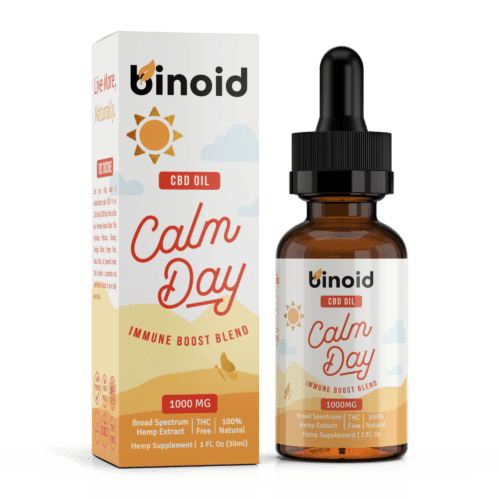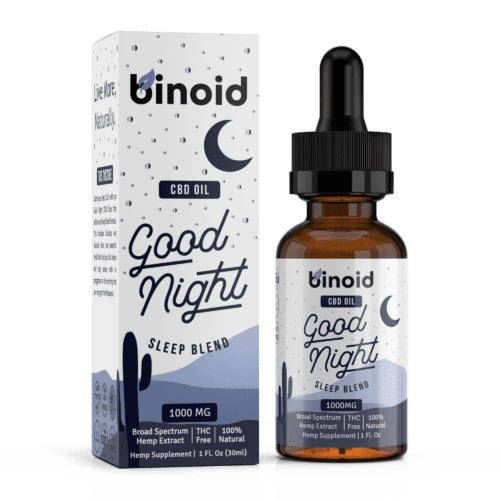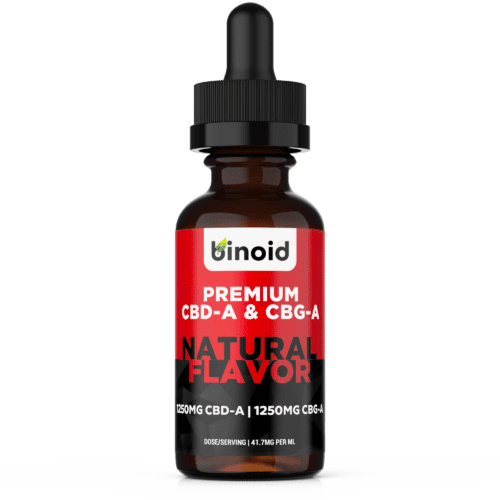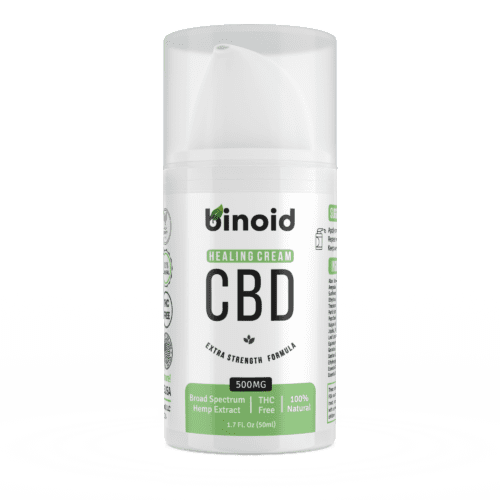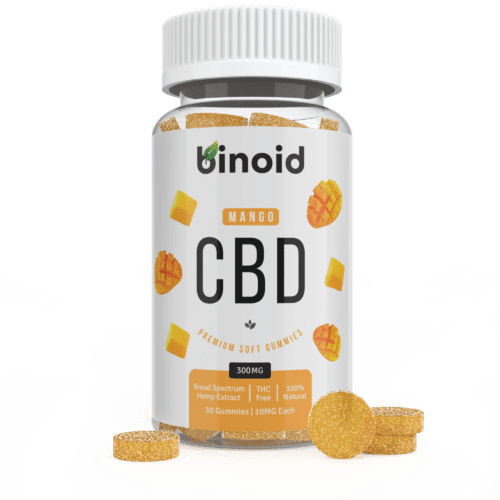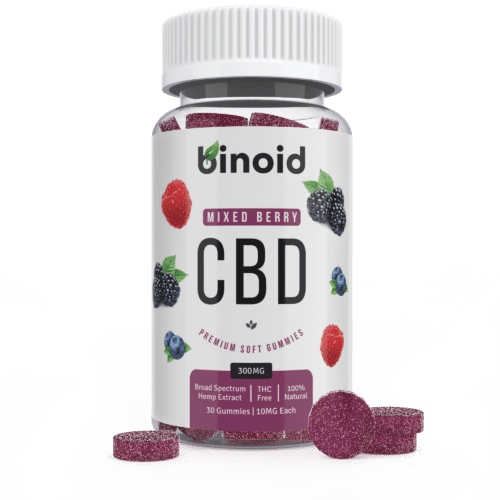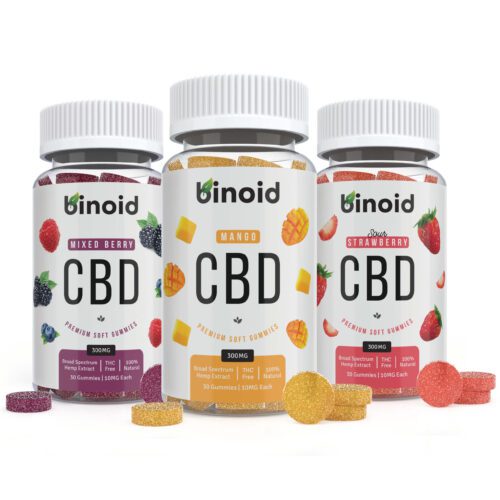Here are 31 proven health benefits and uses of CBD oil that are all backed by scientific studies. Hemp-derived Cannabidiol (CBD) has been trending lately as an agent with many health benefits. CBD comes from the Cannabis Sativa plant, and is used in many forms, including CBD oil tinctures, gummies, creams, and more. Each form with their own unique benefits.
These products are currently being taken by millions of people to supposedly help different symptoms, with great success. However, many benefits of CBD oil are overblown, misinterpreted, or preliminary. This CBD oil benefits guide is the most comprehensive list of the benefits of CBD oil to date. All backed by real studies and scientific research. For 15 Severe CBD Oil Side Effects list click here.
Before we get into the benefits, let’s go over how CBD works in general. In summary. When CBD is absorbed by the body it flows through your bloodstream and ends up in the brain where it binds to neurotransmitters and neuroreceptors called endocannabinoids.
Endocannabinoids and metabolizing enzymes are a part of our Endocannabinoid System (ECS) that regulates factors such as pain, anxiety, sleep and more. When CBD reaches these receptors, it can tell your brain cells to “relax, eat, sleep, forget and protect.” Helping relieve many symptoms.
To Buy CBD Products Click Here
Recommended products
Here is a Complete List of CBD Oil Benefits:
1. May Relieve Pains: Chronic Pain
CBD products have been found help relieve or reduce pains ranging from minor to severe relief based on the strength and concentration of the CBD product used.
Studies of CBD oil ingestion suggest that CBD is beneficial for pain relief.
One study on pain relief from incision cuts found that rats had less pain specifically caused by cuts or incisions after using CBD. Rats that were given CBD oil in a non-rewarding way, wanted to take more CBD oil as a reward, presuming that rats wanted more because “of pain relief or reduction of pain aversiveness.” This study concluded that the effects of CBD could play a role in pain relief.
A study from 2012 analyzed the effects of CBD on chronic pain, or more specifically neuropathic and spinal pain stated “we report that system and intrathecal [into the spinal cord] administration of cannabidiol (CBD)… significantly suppress chronic inflammatory and neuropathic pain without causing apparent analgesic tolerance [increased tolerance against CBD] in rodents.”
What this means is that rodents were able to receive pain relief without building an increased tolerance against CBD, therefore each daily dose did not become less effective overtime. Which is good news for human consumption. However, human studies need to be done to make any conclusion. Based off this evidence, the benefits guide goes as follows.
2. May Reduce Anxiety and Social Anxiety Disorder (SAD)
A study published in 2010 tried to study the difference in effects of CBD and a placebo for Social Anxiety Disorder using neuroimaging to analyze differences in blood flow in the brain. With a daily oral dose of 400mg of CBD oil, the study found that CBD had a significant effect on subjective anxiety. The study concludes and suggests that CBD does have an effect on SAD and a reduction in anxiety.
Another study tested subjects who were given a task of a “Simulated Public Speaking” test to test if CBD helps with Public Speaking anxiety. The study gave the subjects 300mg of CBD, which was tested against four other “drugs” in a double-blind test.
After the testing was complete, they analyzed the subjects and found that CBD “decreased anxiety after the SPS test.” This means that the CBD helped reduce anxiety caused by the simulated public speaking test. The test concludes suggesting that CBD has anxiolytic (anxiety reducing) properties in human volunteers submitted to a stressful situation.
3. May Help Reduce Fear Reaction or Effects
A study (Musty 2005) on CBD for fear was tested on rats, and found that 40mg of CBD helped rats in fear. CBD may have pharmacological effects an antagonist of the CB1 receptor, which affects fear too. Noting that context of the type of stress, anxiety and fear has an effect on the anti-anxiety effect.
Another study (Front Pharmacol. 2016) on fear treatment using CBD found four ways that CBD helps fear.
- Cannabidiol (CBD) decreases fear expression acutely
This is how, or the ways in which people show their fear. The study found no dosage dependency for effects.
- Cannabidiol disrupts memory reconsolidation (re-remembered), leading to sustained fear attenuation (reduction) upon memory retrieval.
This aid in fear also may help PTSD as well. When traumatic memories are remembered, they are stored as “important” by the brain. By this statement, CBD could disrupt this process, and eventually lead to less severe negative memories being processed.
- Cannabidiol enhances extinction, the psychological process by which exposure therapy inhibits learned fear.
This related to helping fight fear, through exposure. In which CBD could help improve the therapeutic healing process.
- Auditory fear expression is also reduced acutely by cannabidiol.
Meaning CBD has a possibility to reduce fear caused by sounds and noises. The study found that the dosage of CBD for Auditory fear had to be a lot more than contextual fear.
The study notes that CBD is tested and has shown benefits for contextual fears (context matters). As well as states that other evidence indicates how CBD “modulates fundamental neurobiological processes” with Pavlovian fear conditioning, which is learning the different environments and stimuli that are related to threats, and therefore helping survival during fearful events.
The study concluded that CBD has found benefits for regulating “learned fear” which includes PTSD, in which something feels dangerous because it was trained to be felt dangerous, although the encounter is not exactly possible. Such as a fear of Great White sharks at the beach without ever actually interacting or being threatened by one. CBD is suggested to reduce this fear until it is no longer present by “regulating learned fear by dampening its expression, disrupting its reconsolidation, and facilitating its extinction.”
4. May Reduce Depression & Increase Mood
By virtue of being being to inhibit anxiety, CBD has been also found to help depression by relieving depression-like symptoms.
A study (Epub 2015) on the specific effects of CBD on depression found results that “CBD exerts fast and maintained antidepressant-like effects as evidenced by the reversal of the OBX-induced hyperactivity and anhedonia.”
Anhedonic symptoms include a lack of enjoyment of things that wasn’t caused by any type of physiological disease. Examples of this would include financial problems, overworking, or family issues.
An example of hyperactivity is ADHD. Where based off the results, CBD may be able to help people with ADHD. This is also a stretch, and is not backed up by any substantial evidence.
The CBD helps depression by enhancing the signals of serotonin and glutamate a specific receptor mechanism (5-HT1A).
Recommended products
5. May Reduce Stress
Also in similar terms as CBD helping depression, there is plenty of evidence suggesting that CBD can be great for stress as well.
CBD for stress works the same way as it does for anxiety, depression, mood and other neuro-related effects by affected the Cannabinoid receptors in our brain. Specifically the CB1 and CB2 receptors. Through these receptors, CBD was found to help decrease traumatic and chronic stress in both human and animal studies.
Through research of anxiety, it was found that CBD helps post-event for anxiety. In that note, CBD would help after stress-inducing situations occur. Such as car accidents, job firings, or tragic events. However, more research still needs to be conducted before any definitive conclusion can be made for stress specifically.
An additional study from May 2019 of 42 heroin addicted adults found that 800mg of CBD lowered stress hormone, heart rate, and cortisol levels compared to adults who were not taking CBD.
6. May Help Sleep Insomnia
CBD has shown to hemp improve the symptoms of insomnia (Russo et all 2007).
A brand new study from January of 2019 studied 75 subjects who stated issues with sleep insomnia or anxiety. Those with anxiety were given a 50mg-75mg dosage of CBD every night after dinner and before bed for over a month. The study found that 66% of these people found that CBD helped their sleep improved over that month.
The CBD was given to them in capsule form. Sleep insomnia is one of the main proponents of using CBD, and there is decent evidence and studies showing CBD benefits for sleep.
7. May Work as an Antioxidant:
In combination with THC, CBD was found to have “neuroprotective antioxidant properties (Hampson et al 1998).
8. May Help Reduce Symptoms of PTSD
For a more in-depth view of how CBD can help PTSD as well as Veterans with anxiety, click here.
However, one study (Das et al. 2013) that was not included in that article was a human study that found that CBD only helped those who had recovered from PTSD naturally and took CBD consistently after. In other words, CBD only worked to help prevent future recurrences of PTSD after someone had stopped having visual memories with fear. Not before.
This study is not completely proven, but there are a few other cases that found a similar result.
The study concluded that CBD has the possibility to be a better treatment than current solutions available for PTSD and other phobias. Including benzodiazepines. While also having less side effects than antidepressants.
9. CBD May Help Fibromyalgia
The evidence that CBD helps fibromyalgia are limited and inconclusive. The only real evidence supporting this are customer reviews who have found benefits for fibromyalgia, and also supporting evidence of inflammation and pain relief in general.
By helping decrease inflammation, CBD is likely to also help issues caused by fibromyalgia.
One study from 2006 did find evidence for a theory that a lack of overall endocannabinoids in the brain is possible to cause issues such as fibromyalgia, migraines, irritable bowel and other “treatment-resistant” symptoms. These neurotransmitter deficiencies are able to possibly elevate these symptoms.
In that case, CBD would restore these deficiencies as CBD is binds those receptors in the brain. The article suggests that Cannabis is a possible solution for Fibromyalgia, as well as migraines.
10. May Help Relieve Cancer Pains & Cancer-Related Symptoms
A study of 177 people that had intractable (chronic with no known cure) pain caused by cancers that are not responsive to opiates showed that Sativex produced statistically significant evidence for relieving the pain while an almost pure THC extraction did not show any significant pain relief. This evidence proposes that CBD may have been valuable for providing pain relief for cancer related pain.
Additionally, in two other studies from 2005 and 2006 ((Kogan; Ligresti et al) CBD and THC combined was able to destroy the growth of malignant (deadly) cells as well as prevent cancer-created cells from developing.
In 2007, a drug that is almost equal THC to CBD in ratio called Sativex was approved as a treatment for intractable cancer pain. Intractable pains are constant pains that have not been found to be cured by anything. CBD attaches to receptors in the ECS system, that controls the central nervous system such as the brain, as well as the peripheral nervous system. Initial research has found that this binding has found relief benefits for this type of cancer pain. The evidence is still minor, but there these studies provide optimism for how CBD may help cancer.
Recommended products
11. May Help with Yoga, Meditation, Fitness, & Sports
Because of the benefits of CBD found for pain relief, inflammation, as well as anxiety and sleep insomnia, there is a large sector of athletes and amateurs alike who have turned to CBD relief to help with their symptoms. Athletes in all facets of sports have started using CBD to help with post workout and recovery training.
Especially with injuries as shown by benefits of inflammation and pain relief. Professionals and amateur athletes are using CBD to get ahead. And it’s working. As well, CBD and Yoga is becoming very popular because of their similar functionality and usefulness for those who want to relax and clear their minds.
12. May Give Relief From Nausea and Vomiting
From another study in 2005 (Pertwee), it was found that CBD in addition to CBD can have effects that relieve nausea and vomiting.
13. May Help Reduce Inflammation (Chronic Inflammatory)
Inflammation itself is an immune response from infections, illness or injuries.
A study on rats with inflammatory pain were given a daily oral treatment of 20mg of CBD for a total time of 7-14 days after injury. The study found that CBD oil reduced the pain response and sensitivity to heat and physical stimulus, such as touch. In other words, by decreasing the pain response or threshold, inflammation itself decreases.
What this means is that CBD oil appears to reduce the way the body responds these injuries. And instead of causing inflammation, the CBD oil gives therapeutic benefits that decrease the bodies negative immune response.
In a test [Exp Dermatol. 2016] studying different compounds of cannabis including CBC, CBDV, CBG, CBGV and THCV noted that all of these phytocannabinoids showed remarkable data for ‘anti-inflammatory actions.’
The study then concluded stating that these cannabis compounds could be a ‘novel’ and ‘safe’ way for inflammation caused by cutting of the skin. Such as injuries, puncture wounds, and sharp object cuts including knives.
All of these phytocannabinoids can be found in our full spectrum CBD oil tinctures here. Non-spectrum oils are labeled (THC-Free).

14. May Help Nerve Pain
The same study that found the benefits of CBD for inflammation pain, also found that a daily oral treatment of 2.5mg-20mg of CBD to rats for 14 days after nerve pain issues seemed to relieve the pain. Stating that there is a “potential for therapeutic use of cannabidiol in chronic painful states.”
15. May Reduce Acne & Dry-Skin Syndrome: Natural Analgesic
CBD has been found to help reduce acne as an complementary benefit to its anti-inflammatory properties.
A study [J Clin Invest. 2014] found that CBD affects the sebaceous gland, which is the gland in the skin that controls the secretion of lubricating oily matter (sebum) in which hair follicles get stuck in to create acne.
The study found that CBD inhibited the secretion of this oily matter from the sebaceous gland, therefore limiting acne formation.
Additionally, the continuation of this study [Exp Dermatol. 2016] found that CBD “exerted complex anti-acne effects by normalizing ‘pro-acne agents’ with in decreasing oil reproduction.
The continuation also studied the anti-inflammatory and Acne treatment effects of other Cannabis Sativa compounds, including CBC, CBG, CBGV, CBDV and THCV.
Their data found evidence that CBGV and CBG could be agents for dry-skin syndrome and CBC, THCV and CBDV show high efficiency as anti-acne agents. Stating that they have high potential for being an acne solution.
Recommended products
16. May Help Multiple Sclerosis
CBD has been found through clinical studies to help Multiple Sclerosis (MS). A product called Sativex, which consists of an equal ratio of Tetrahydrocannabinol (THC) and CBD was approved in Canada 2005 as a treatment for neuropathic pain in MS, as CBD binds to those receptors with endocannabinoid modulating effects.
Noted in a study, they found that CBD in combination with THC helps prevent the negative effects of THC such as anxiety, panic, intoxication, increased heart rate and the “high” effect.
17. May Help Arthritis (Rheumatoid)
CBD was analyzed on a rodent model, and was found to inhibit inflammation with rheumatoid arthritis. However, this study lacks a human model comparison.
In one randomized, double-blind human study using a Placebo and Sativex they had 56 patients use the products only at night before bed with almost an equal ratio of CBD and THC (15mg) for 5 weeks. At the end of the study, it was found that the Sativex was preferred over the placebo in terms of morning arthritis pain during rest and movement.
18. May Help Migraines and Chronic Headaches
After much research, there is only one conclusive piece of evidence regarding CBD for migraines. It happens to be an impressive study executed by Italy, and presented to the 3rd Congress of the European Academy of Neurology (EAN) in 2017.
The study was committed on 48 chronic migraine volunteers. They gave those volunteers a combination of two compounds, one containing 19% THC and the other containing 0% THC and 9% CBD, for a period of three months. Starting with 10mg of total dosage. The study noted no beneficial effects were noticed until 100mg, and then at 200mg found a 55% decrease in acute pain from migraines and chronic headaches!
They found that the relief effectiveness of the Cannabis compound combination to be in line with other migraine treatments, however, they also noticed a 43.5% reduction in acute pain intensity from migraines as well. Unlike the other treatments. This is possibly due to the effect that CBD has on the brain and neurotransmitters, in contrast to other treatments which don’t work the same way THC-CBD does.
The one caveat of this study is that they only noticed that the combination is only effective in those individuals who have been dealing with migraines and chronic headaches since childhood. Stating that it does not improve relief more than other treatments in people without previous history.
The study concludes very little CBD side effects on migraines other than occasional drowsiness and difficulty concentrating. Which is interesting as CBD has been found to help concentration in others.
Overall, study on migraines is fairly conclusive, however, there is no such thing as too much research. More studies are likely to be completed within the next few years to confirm or contradict these findings.
19. Seizures & Epilepsy Treatment:
Just last year in 2018, the first FDA-approved CBD treatment for two rare conditions of seizures and epilepsy called Epidiolex. In case you are wondering or may need use of the treatment, it costs a hefty price of $32,500 per year and contains
1. Lennox-Gastaut Syndrome: Occurs in early childhood, with the average ages being between 3-5 years old.
2. Dravet Syndrome: Occurs within the first year of life with ‘fever-related’ seizures.
This was huge step in medical treatment as the first approved treatment for Dravet Syndrome. According to FDA.gov, “Epidiolex’s effectiveness was studied in three randomized, double-blind, placebo-controlled clinical trials involving 516 patients with either Lennox-Gastaut syndrome or Dravet syndrome. Epidiolex, taken along with other medications, was shown to be effective in reducing the frequency of seizures when compared with placebo.”
Epidiolex was found to decrease seizure rate by 42%. Side effects from the treatment included lethargy, sedation, and sleepiness. For CBD oil-related side effects click here.
Epidiolex contains 100mg/ml of CBD, as well as “dehydrated alcohol, sesame seed oil, strawberry flavor, and sucralose.”
The FDA combined these tests with scientific research of the CBD compound itself to create treatment.
Recommended products
20. May Help Decrease Cigarette Smoking Habits
This one relates more to CBD vaping more than CBD oil itself, however a study [Addict Behav. 2013] found a 40% decrease in cigarette use when test a placebo and CBD vape product.
The study was a randomized double blind test of 24 nicotine addicted smokers.The study concluded that their was strong evidence of CBD curbing nicotine addiction, and added more studies should be explored.
21. May Help Drug (Opioid) Withdrawal & Addiction
Initial CBD studies [Neurotherapeutics. 2015] found that CBD helps inhibit ‘drug-seeking behavior with viritually no possibility of abuse or over-use.
22. Digestive Aid
The Endocannabinoid System (ECS) also has major proponents within normal digestive and gut function. Things such as inflammation, bowel disease, and gut permeability all run through this system.
CBD has shown beneficial effects for anti-inflammation, which may show positive potential for digestive aid. A doctor stated “it’s interesting to note that deficiencies in the ECS are associated with pathological states including irritable bowel syndrome (IBS), colorectal cancer, and celiac disease.”
By working through the ECS system, CBD can play a role in gut-related functions.
23. Muscle Relaxer and May Speed Up Muscle Recovery
CBD Creams are becoming more and more popular within fitness, gym, and sports cultures. For good reason.
The ECS also plays a major role within muscle chemical messages from the Central Nervous System (CNS). The more chemical messages sent to the muscles to contract, the more “stiff” the muscle becomes. CBD can aid in decreasing the amount of messengers sent to muscles, thereby helping muscle relaxation.
This means that rubbing CBD creams on your muscles post-exercise or workout could help them relax, decrease muscle stiffness, decrease recovery time, decrease muscle breakdown feeling, and decreasing injury to over-worked muscles. The amount of athletes using CBD creams has multiplied within the last few years for this reason.
24. Might Have Neuroprotective Properties
There is plentiful evidence backing up CBD’s ability as a neuroprotective agent. One document noted that CBD encourages neuroplasticity, the growth of new neurons in the brain, therefore decreasing the brain’s deterioration. CBD may protect against damages from “ischemia, traumatic blows, or autoimmune and genetic disorders” and also help recovery from them.
This is also may suggests cannabidiol’s possible effectiveness in helping brain traumas or injuries. By push neuron regeneration and healing. Another study [Surg Neurol Int. 2018] found that CBD might help with brain damage, degenerative diseases, and inflammation specifically. Which also ties into neurobehavior and improvements. This studies identifies the effectiveness of CBD paired with THC to possibly increase benefits.
An additional older study [Pediatr Res. 2008] concluded with a suggestion stating, “CBD administration was associated with cardiac, hemodynamic, and ventilatory beneficial effects. In conclusion, administration of CBD after HI reduced short-term brain damage and was associated with extracerebral benefits.” This study suggest similar conclusions as other studies, with CBD being a beneficial agent as a short-term aid for multiple symptoms.
Therapeutic effects of CBD have taken 4-6 weeks of constant use to start seeing any clinical effects.
Another study summarized, “cannabinoids can be neuroprotective via their immunomodulatory properties, which have been mainly attributed to CB2 receptors.” These are receptors that have a major effect on our immune system, and overall body health for fighting diseases.
25. May Benefit Heart Health
Cardiovascular health is another topic that has been explored with the benefits of CBD and CBD oil products. A study [Br J Clin Pharmacol. 2013] found evidence suggesting that CBD affects platelet aggregation, as well as the death and sruvival of white blood cells in blood.
The study found that CBD reduced vascular tension by 40% as a maximum of pre-existing condition. This includes human arteries, involving CB1 receptor activation.
This study included additional information from previous piece of research suggesting that the cardioprotective benefits of CBD are likely due to immune control effects than actual heart benefits.
The study also found that after conduction research on rats, that CBD increased CBF, which significantly affects and decreases the probability of a stroke. A decrease in CBF shows great relevance to strokes.
The studies are preliminary, and are mostly representative of rats. However, they provide positive evidence towards the possible effects on humans.
Recommended products
26. May Reduce Risk of Diabetes and Obesity
By virtue of aiding chronic inflammation, cannabidiol has shown hope in helping with type 2 diabetes and insulin resistance. A scientist named Mark Rosenfeld stated, “unlike insulin and other medications for diabetes, CBD may actually suppress, reverse and perhaps cure the disease [diabetes].
There is little cold hard evidence for this, but it is a possible side effect of high dosages of CBD oil.
27. Immunomodulatory Effects
CBD is shown to have potent effects in internal body controls, [Biochem Pharmacol. 2008] and shows significant evidence for increasing the activation of cells that control immune response and health (T cells). CBD gives evidence of increasing the magnitude of specific cell function responses that increase immune system benefits and modulation. Therefore improving immune function.
Another study found evidence that the way CBD affects the cannabinoid receptor 2 (CB2) lends to the potential of how cannabidiol may help modulate the immune system. The study acknowledges clear evidence that CBD helps immunomodulation during the inflammation process, and that CBD may affect it in four ways. This includes inducing the normal death cycle of cells, decreasing cell creation vs death (increased for tumors), producing more anti-inflammatory agents, and creating more regulatory T cells.
Targeting CB2 is cited as a possible revolutionary approach to the treatment of autoimmune and inflammatory diseases.
28. Potential in treatment of HIV-1 infection
The boost that CBD may have as an anti-inflammatory shows additional possible benefits in boosting immune cell agents against HIV-1. The way CBD works with the CB2 cell provides immune therapeutic possibilities to fight dysfunctional HIV-1 cells.
Using human and animal models, multiple studies found that cannabidiol deactivates important HIV-1 cells, and through CB2 agonists, decreased HIV replication. The same study document noted that THC also has benefits against HIV-1 infection.
29. CBD is an effective treatment for heroin addiction:
A new study just released in May of 2019 found intense cravings are the leading cause for drug use, and any substance that reduces this craving may reduce the chance of overdose and relapse.
The study took 42 adults with an average heroin use of 13 years, and divided them into three groups to take 800mg of CBD, 400mg of CBD and a placebo respectively.
Each adult was given the dosage once daily for 3 days consecutively, and were studied for the next two weeks. During this time, they were shown pictures of nature along with pictures of heroin related items such as syringes and then were asked to state their anxiety levels.
The study found that the adults who were taking CBD showed a 2-3x reduction in heroin cravings in contrast to the placebo group. The study also showed that the difference between the CBD groups was insignificant.
30. OsteoArthritis (OA) Joint & Neuropathic Pain:
Osteoarthritis (OA) is a joint disease that has many facets and effects, such as intermittent inflammation, joint degeneration, and peripheral neuropathy.
A new study from 2017 wanted to find if CBD stopped the inflammation that ends up causing Osteoarthritis and neuropathy pain. Additionally, they wanted to analyze CBD’s anti-nociceptive properties (the ability to block the feeling or detection of injurious or painful stimulus of sensory neurons). Or in less complicated terms, the ability of CBD to stop us from feeling pain or injuries.
In order to study this, the doctors induced Osteoarthritis in male rates, and then used dosing of CBD to see the effective results. The study found that in end stage OA, the CBD reduced acute and transient joint inflammation. They also found CBD to be a neuroprotective. Meaning, it helps prevent our brains and senses from feeling the discomfort caused by OA.
The data from this study indicated that oral administration of CBD blocked OA pain. Concluding that CBD treatment prevented the later development of pain and nerve damage in OA joints, and that CBD may be a safe and useful therapeatic for treating OA joint neuropathic pain.
31. Increased Effectiveness:
CBD has been found to have the opposite effect of tolerance, with an increase in effectiveness over time. Therefore, the benefits of CBD may still occur even with a smaller dosage of the same product. Every month or two, you should decrease your dosage of CBD to see if you still receive your desired effects.
Conclusion & CBD Discount Code:
For finishing this entire article, feel free to use the Coupon Code BINOID5 for 5% off EVERY product on our store! This includes our brands such as CBDistillery, CBDfx, Medterra, and Select CBD.


